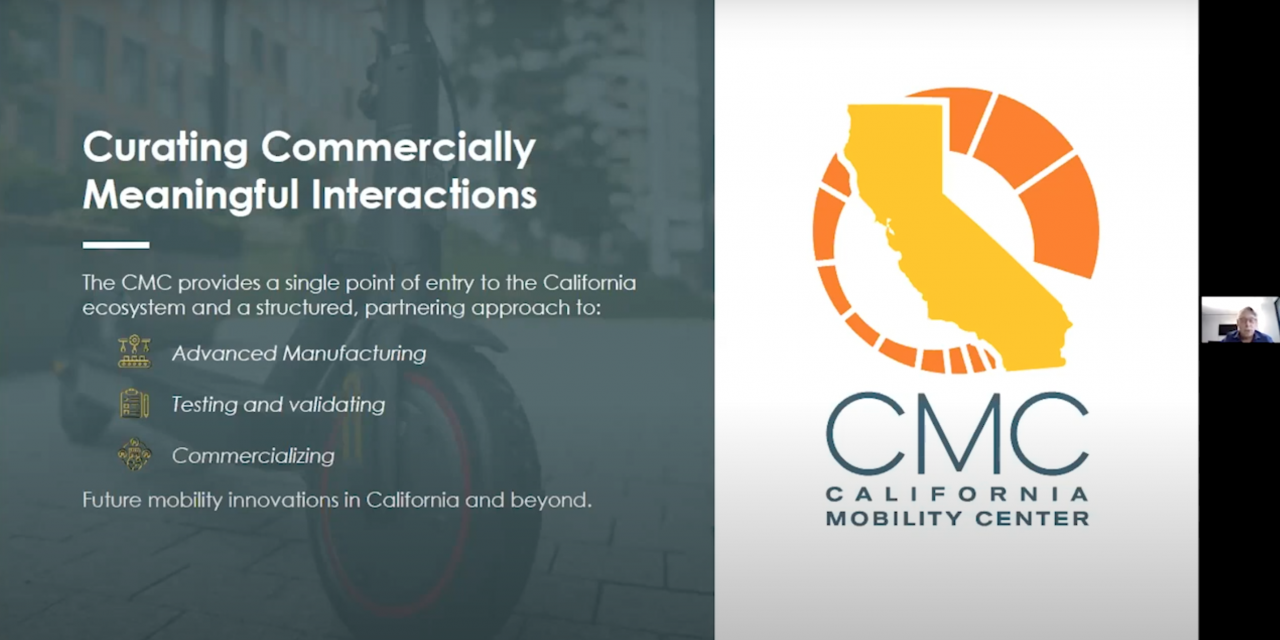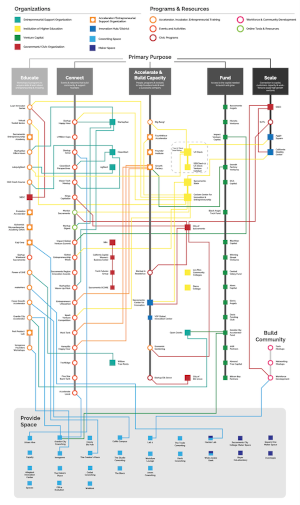The future of transportation and mobility are poised for massive disruption in the coming decades due to social and technological changes. Innovations in electric vehicles (EV), shared mobility through services such as Uber and Lyft, increased connectivity, and autonomous driving are all converging to drive massive changes. And California is one of the most influential markets in this future mobility industry.
Recognizing an opportunity to be a leader in innovation, Sacramento leaders have come together to create an innovation hub focused on the research, prototyping and commercialization of future mobility and transportation innovations — The California Mobility Center (CMC).
Due to open in Sacramento in March, the CMC is championed by SMUD and backed by a strong coalition of local civic leaders and organizations, such as Sacramento State, Greater Sacramento Economic Council, Terzo Power Systems, and Los Rios Community College.
The CMC is intended to provide a single point of entry to California resources to create a faster path from concept to commercialization, providing support for startups through product development, advanced manufacturing, testing and validation, and commercialization support.
“The CMC is focused on creating an ecosystem of entrepreneurs, large and small businesses, investors, and academia to build world-class companies.”
At StartupSac’s Future Mobility Showcase last October, we welcomed former SMUD CEO and Chairman of the Board for the California Mobility Center to give the opening keynote address.
In his keynote, Orchard explained the value proposition of the CMC to mobility startups, saying, “Startups clearly recognize the California advantage and more than 40% of mobility startups call California home. But despite all these natural advantages, the world for a mobility startup is anything but simple and the barriers can be overwhelming. Whether it’s access to capital, talent, prototyping, or testing and validation services, just to name a few of the obstacles they face. So the CMC is here to help startups on their journey. We’re here to help them remove barriers and successfully commercialize.”
Orchard further explained how the CMC is a commercialization collaborative among the three types of stakeholders; Members, Clients, and Preferred Service Providers. “The CMC has been purposefully structured to empower key players in future mobility to collaborate on the successful commercial launch of new products and services. A small CMC staff recruits participants, evaluates plans, oversees partnering, and facilitates access to those resources needed for commercial success. In broad terms the CMC ecosystem enables each constituent to both contribute and benefit from the other participants at the CMC. Industry members provide clients — who will largely be startups — with advice, resources, industry insights, and market access. Clients provide industry members with innovative insights, early access to promising new products, and partnership opportunities. Preferred service providers and staff provide the expertise, equipment, and programming needed to bring innovative concepts to fruition.”
Orchard went on to share detailed plans of the California Mobility Center, including:
- The goals and focus of the CMC
- Why the time is right for the CMC
- Why Sacrament is poised to lead in future mobility
- How the CMC is structured
- How CMC clients and industry members in the region will benefit the work being done at the CMC
Watch the video of the full address below.













